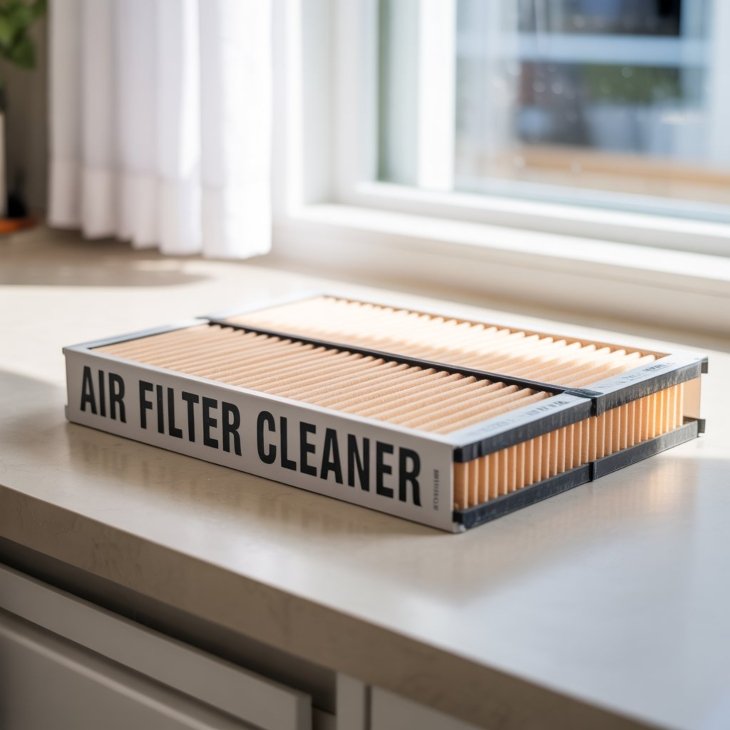Whether you’re a car enthusiast or someone who simply wants to keep their vehicle in optimal condition, knowing how to maintain the air filter is vital. One overlooked component that directly affects your engine’s health and fuel efficiency is the air filter. Instead of constantly replacing it, using an air filter cleaner can save money, improve performance, and extend the lifespan of your filter.
The average driver might not realize how much dirt, debris, and contaminants get trapped in the air filter over time. These particles restrict airflow, forcing your engine to work harder—which can reduce fuel economy, throttle response, and even lead to long-term wear.
This article explores everything you need to know about air filter cleaners—including what they are, why they matter, how to use them correctly, and how they benefit both your wallet and your vehicle’s health.
What Is an Air Filter Cleaner?
An air filter cleaner is a chemical solution specifically designed to remove accumulated dust, oil, grease, and dirt from reusable air filters. Most commonly used for high-performance filters—like those from K&N, aFe, or AEM—these cleaners dissolve contaminants and prepare the filter for re-oiling and reinstallation.
These cleaners are typically non-corrosive, biodegradable, and engineered to maintain the material integrity of the filter media. They are not suitable for disposable paper filters, which must be replaced rather than cleaned.
Using a proper air filter cleaner ensures thorough decontamination without damaging the mesh or cotton layers that trap fine particles.
Also you might be like: NyCapital
Why Cleaning Your Air Filter Matters
Over time, your vehicle’s air filter becomes clogged with dust, pollen, and other pollutants. A dirty filter reduces the amount of air reaching the engine, disrupting the air-fuel mixture and compromising combustion. This can lead to sluggish acceleration, poor fuel economy, and increased emissions.
A cleaned filter restores optimal airflow, which:
- Enhances engine breathing and responsiveness
- Promotes better fuel efficiency
- Reduces the risk of engine knocks or misfires.
- Extends the life of the filter and the engine
For reusable filters, routine cleaning with a proper air filter cleaner is a proactive, cost-effective maintenance step.
How Often Should You Clean Your Air Filter?
Frequency depends on driving conditions and the type of filter used. High-performance reusable filters generally need cleaning every 15,000 to 30,000 miles. However, if you drive in dusty or off-road environments, cleaning may be required every 10,000 miles or less.
Signs your filter may need cleaning:
- Noticeable drop in throttle response
- Decrease in MPG
- Whistling or hissing sounds from the intake
- There is a visible buildup of grime on the surface of the filter.
Regular inspection every few months is a beneficial habit, especially in harsh climates or regions with heavy pollen.
Challenges and Mistakes to Avoid
While cleaning a reusable air filter is simple, there are common mistakes that can reduce its lifespan or efficiency. Using the wrong cleaner—like degreasers, dish soap, or alcohol-based sprays—can deteriorate the filter media and compromise filtration. Another mistake is drying the filter with forced heat, which risks warping or shrinking the filter components.
Skipping the oiling step (for oiled filters) is another critical error. Without oil, the filter loses its ability to trap fine dust, exposing the engine to contaminants. Over-oiling can be equally harmful, leading to oil being sucked into the intake and damaging sensors like the MAF (Mass Air Flow) sensor.
Understanding the specific care requirements of your filter brand is crucial. Always follow the manufacturer’s cleaning and re-oiling guidelines to avoid damaging your investment.
Real-World Example: Cleaner Equals Performance
In a recent test involving two identical vehicles—one with a dirty reusable air filter and one with a freshly cleaned filter—the difference was measurable. The vehicle with the clean filter showed a 6% improvement in fuel economy and a 5% better throttle response in 0–60 acceleration tests.
Mechanics often report cases where simple filter cleaning improved drivability and idle smoothness. In fact, a neglected or clogged filter often leads to performance loss in vehicles with aftermarket cold air intakes.
Drivers have observed that a clean air filter improves the vehicle’s ability to “breathe” even in daily use, particularly when accelerating rapidly or going uphill.
Best Practices for Maintaining a Reusable Air Filter
While the core of air filter maintenance lies in cleaning, ongoing care habits can extend filter life significantly. Conducting regular visual inspections during each oil change enables the early detection of debris or damage. Always store backup filters in a clean, sealed bag if you rotate between filters during maintenance.
Avoid overexposure to moisture or chemicals during engine bay detailing. Ensure the airbox is sealed correctly to prevent bypass of unfiltered air. After cleaning, always double-check the seating of the filter to ensure proper airflow direction.
With these practices, a reusable filter can last upwards of 100,000 miles—some even more—delivering consistent performance and savings over time.
FAQs
What is an air filter cleaner used for?
It’s a cleaning solution designed to remove dirt, oil, and contaminants from reusable vehicle air filters to restore performance.
Can I use household cleaners instead of an an air filter cleaner?
No. Household cleaners can damage the filter material or leave residue that affects engine performance.
How often should I clean my reusable air filter?
Generally, you should clean your reusable air filter every 15,000 to 30,000 miles, with the frequency increasing in dusty or off-road environments.
Is it okay to clean a disposable air filter?
No. Disposable paper filters are not made to be cleaned and should be replaced when dirty.
Can I drive with a wet air filter?
Never. A wet filter can be sucked into the intake and cause serious engine damage. Always allow it to dry completely before reinstalling.
Do I need to re-oil my air filter after cleaning?
Only if it’s an oiled filter. Foam or dry filters don’t require re-oiling.
Conclusion: A Small Task with Big Impact
Cleaning your air filter may seem minor, but its impact on engine health, fuel efficiency, and long-term maintenance is significant. An air filter cleaner isn’t just a chemical spray—it’s a preventive tool that keeps your engine breathing clean and strong.
By learning how to use the right products and following proper steps, you can take control of your vehicle’s performance, avoid unnecessary repairs, and save money over time.
Take the time to clean your reusable air filter—your engine will thank you with smoother rides, stronger acceleration, and fewer stops at the pump. Start today and keep your car running like new.




